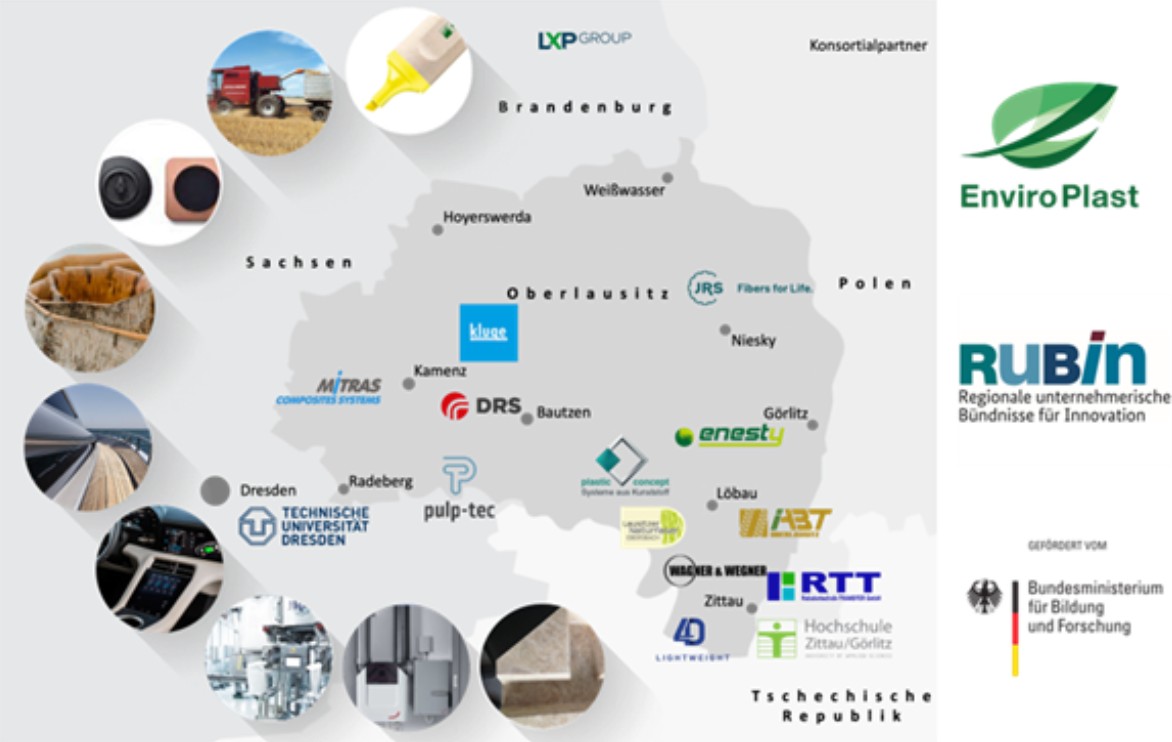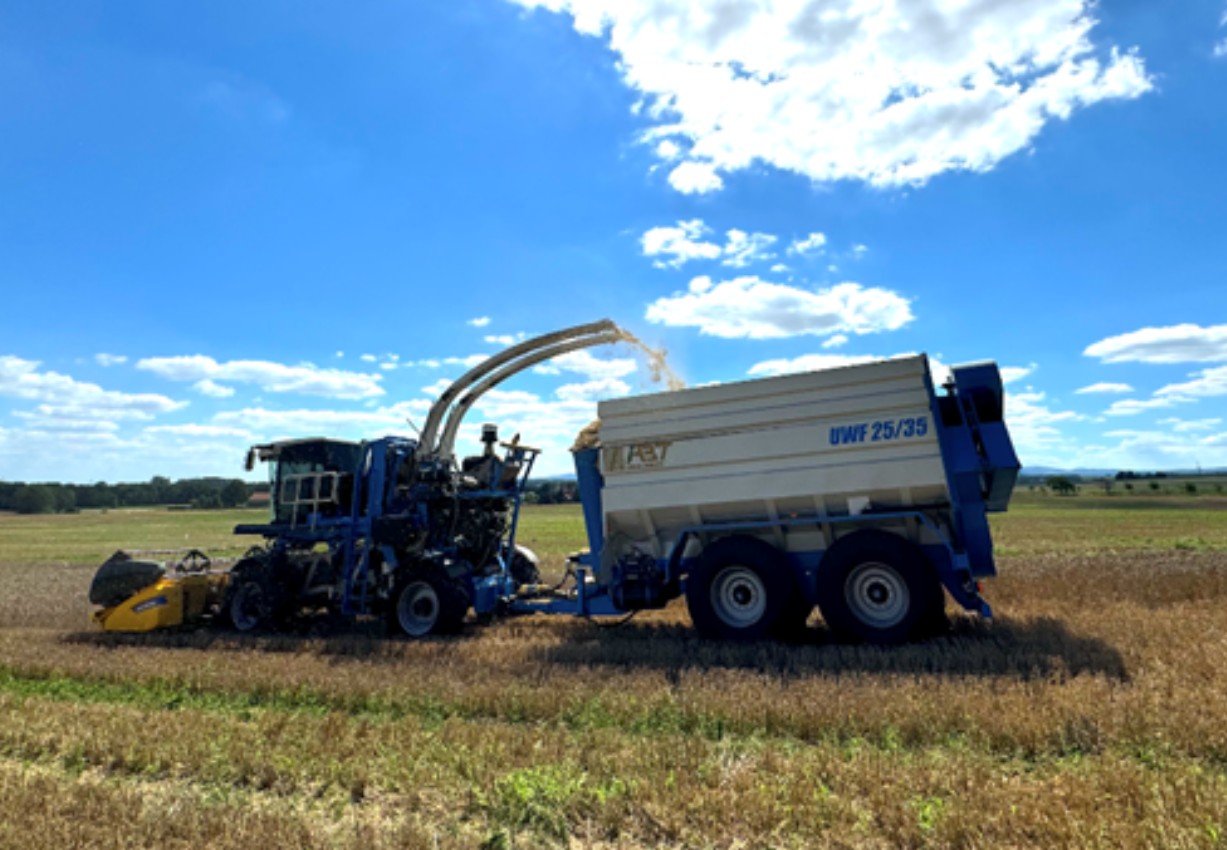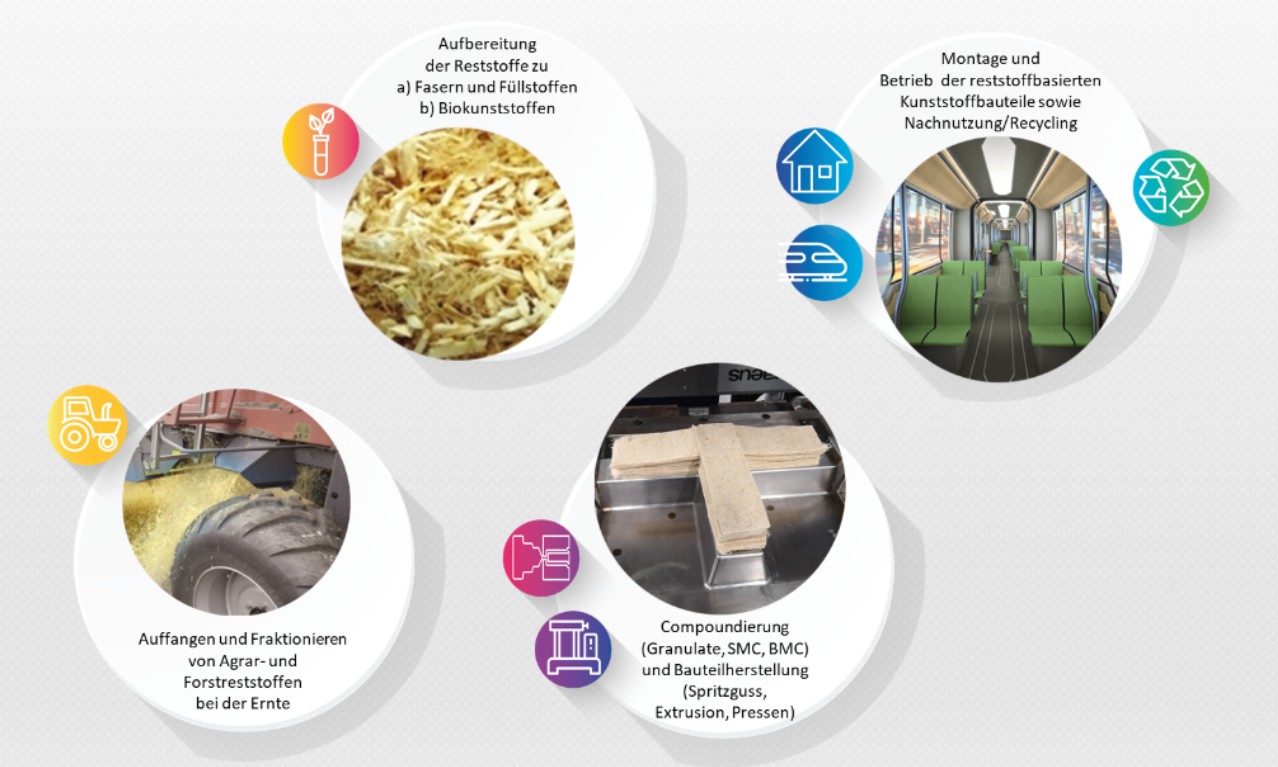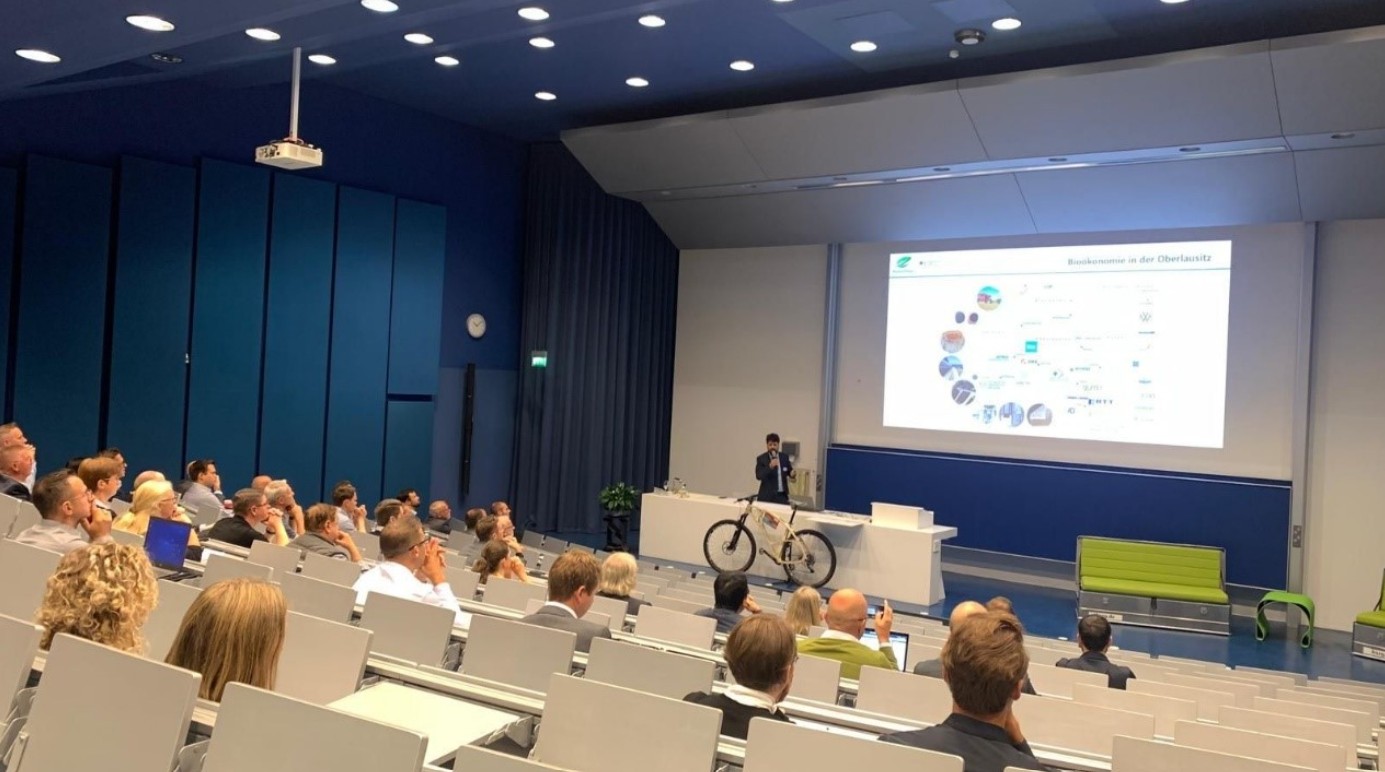sustainability
Kickoff and first project meeting of the RUBIN alliance EnviroPlast on September 26th, 2024 in Zittau
- sustainability
- Hits: 15

Potential title: Biogenic residues as a key to sustainable plastic production in Upper Lusatia
On September 26th, 2024, the first project meeting of all EnviroPlast alliance partners took place at the Zittau/Görlitz University of Applied Sciences in Zittau with over 100 participants.
The event was divided into a public, informative part and an internal part, where specific project topics were discussed. In addition to encouraging greetings from the Saxon Prime Minister, among others, the event featured interesting specialist lectures, an insightful panel discussion and an accompanying exhibition with many exhibits from research institutions and companies from the large project consortium.
The interdisciplinary EnviroPlast consortium consists of 15 funded and 10 associated partners from business and science, mostly from Upper Lusatia, and covers the entire spectrum of bioeconomic value creation from harvest to application and recycling.
The aim of EnviroPlast is to specifically use biogenic by-products and residues, especially fibrous materials such as sawn wood, grain straw, chaff and green waste, as raw materials for the production of biopolymers and as reinforcing and fillers. In Germany, up to 200 million tons of fibrous residues are generated every year, which have so far remained largely unused or are only used to a limited extent. EnviroPlast wants to address this challenge and reduce the use of additional agricultural land for plastic production by using biogenic residues. This could significantly improve resource conservation and have a positive impact on the plastics industry's carbon footprint.
Currently, the demand for plastics in Germany due to conventional agricultural products would require an enormous amount of land, which would have a significant impact on food production. EnviroPlast offers a solution that combines sustainability with cost-effectiveness without significantly changing existing economic processes.
Another central goal of the joint project is the use of fibrous residues as fillers in plastics. This reduces the amount of plastic required as well as the use of synthetic fibers and additives, which not only reduces the CO2 footprint of the manufacturing companies, but also saves material costs.
EnviroPlast takes a holistic approach to ensure high quality plastic parts made from biogenic, regional residues that meet the specific requirements of the vehicle and construction industries. With almost 100 plastics processing companies, Lusatia in Saxony offers optimal conditions for the project's goals, as the region has a high density of companies in this industry and at the same time has future-oriented agricultural and forestry operations to ensure the supply of raw materials.
In addition, some original equipment manufacturers (so-called OEMs) are involved in the project as associated partners to ensure that the research results can be put into practice quickly.
The association is funded with a total of around 10.3 million euros for three years as part of the “RUBIN – Regional Entrepreneurial Alliances for Innovation” program of the Federal Ministry of Research (BMBF).

Fig. 1: Representation of the consortium partners (map) in the region

Fig. 2: Prototype of a compact harvester for obtaining chaff straw as a usable filler for plastics; The picture shows the test drive for the chaff straw harvest in August 2024

Fig. 3: Exemplary representation of the sub-process steps of EnviroPlast

Fig. 4: Kickoff of all alliance partners on September 26th, 2024 at Zittau/Görlitz University
Contact
Prof. Sebastian Scholz, alliance spokesman, email:
Mr. Ronald Wolf-Wagenühr, alliance coordinator, email:

